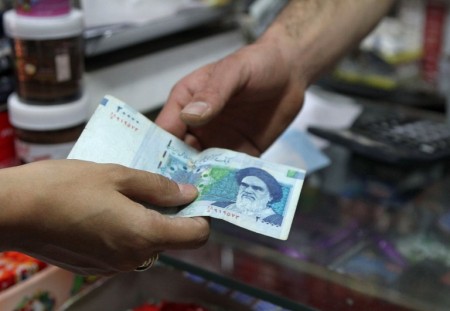Iran has switched its foreign currency for reporting from the US dollar to the Euro, but the step is unlikely to have any effect on Tehran’s currency crisis.
The Rouhani Government’s economic committee had announced the step last week, and it was formally confirmed on Wednesday.
The move is among more substantive measures which have so far failed to halt a historic slide in the value of the Iranian rial. Earlier this year the currency broke its all-time low, set in 2011-12 amid tightening international sanctions, of 45,000:1 v. the dollar. In recent weeks, it plummeted another 25% to reach 61,000:1, despite the raising of interest rates and arrests of unofficial currency dealers.
See Iran Daily, April 18: Uncertainty as Government Fails to Stem Currency Crisis
Last week the Government declared a unification of official and open-market rates, raising the former from 37,000:1 to 42,000:1. But the move has only closed many exchange offices, unable to hold and sell foreign currencies at the new rate, and led to long lines at the few official exchange outlets that are still dispensing small amounts of dollars, Euros, and other money.
Yesterday the Supreme Leader blamed foreign enemies for the “recent issues in the currency market” and asked Iran’s intelligence services to defuse “plots”.
The declaration of the Euro as the reporting currency has been a political goal of Ayatollah Khamenei for years, but it is largely a cosmetic step for now. Most world trade is denominated in dollars, meaning that Iran will have to bear the cost of conversion for Euro transactions.
However, Tehran is hoping that the switch will lead foreign companies to bypass the threat of US sanctions to do business with the Islamic Republic. Despite the implementation of the July 2015 nuclear deal, the risk of ongoing American penalties has led many firms to avoid or limit their trade and investment with Iran.
In February, the head of that state-owned French investment bank Bpifrance said Paris will start offering euro-denominated credits to Iranian buyers of its goods later this year.

